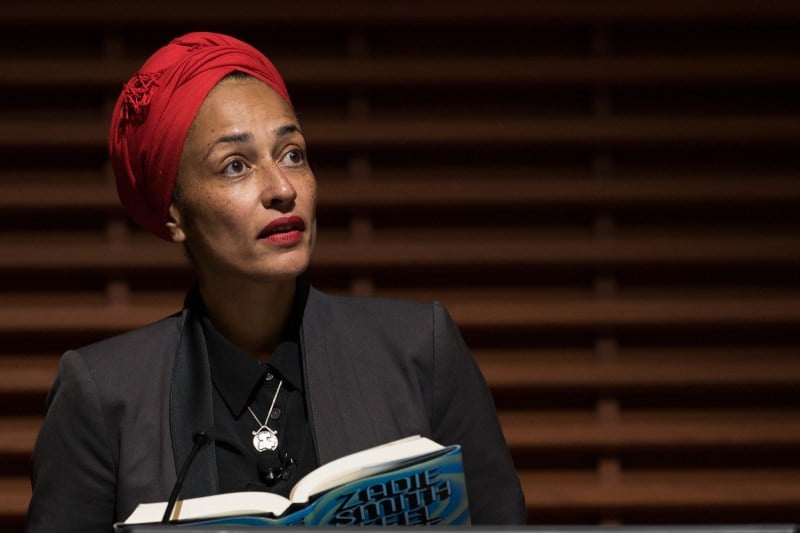Zadie Smith — introduced as “one of the most prolific and compelling literary voices of our time” by vice president for the arts Harry Elam — kicked off this year’s Presidential Lecture by reading an essay from her most recent work, “Feel Free,” about the style of popular culture known as “camp.”
“Camp: doing more than is necessary with less than you need,” Smith read. “Camp begins in lack, in absence. It is the nuclear option of the disenfranchised.”
In conversation with Elam, Smith spoke of her own experience with making something of nothing.
“When you grow up, sometimes, in minority culture … there were no models, there are no direct models for the way you’re going to be, or [at least] very few,” Smith said. “So you find yourself making connection[s] with things which, on the surface, seem to have nothing to do with you. And you kind of claim them for yourself … You were looking anywhere you could for something to hold onto.”
Smith said she had a similar approach to her college education at Cambridge University, a perspective she said she gleaned from her mother.
“When I went to college, she was saying to me, ‘This [i]s not going to be easy. You’re going to feel isolated. This is a strange place for you to go, but strip it. Strip it for parts,’” she recalled.
Smith called “White Teeth,” her entrance into the literary world, a sort of “regurgitation” of her Cambridge education. Since her debut, she reported she’s been finding inspiration in other places — namely, religion.
“That’s something that I think goes back to my childhood: fascination with other people’s religions, given that I was stuck in a militant atheist household,” Smith joked.
While Smith’s books are varied in their focus and characters, she often includes mixed race characters and characters who question their ethnic and cultural background throughout the course of her stories. When asked why these themes are so interesting to her, Smith spoke of the universal human need for belonging.
“It’s a deep urge,” Smith said. “And I don’t deny the urge, but I do think we should have some language for the positive value of not belonging. Because people who feel like they really belong in a place, that they’re rooted here, that America runs through their blood, that they’re so goddamn American, they’re terrifying.”
“There might be a kind of ambivalence, of anxiety, of uncertainty that’s productive,” she added.
Despite being drawn to this amorphous view of identity, Smith said she is still a lover of history, a characteristic that becomes clear in her continents- and centuries-spanning works.
“No one can exist without any sense of history, it’s too hard. Maybe Jean-Paul Sartre, but not me,” Smith quipped.
Elam also asked Smith about her process which, she admitted, has changed since becoming a mother of two.
“I could write more — and I know people write day and night and will produce many more books than I do — but then I like the way [my children] force me to be in the world, that’s the best way to put it,” she said.
The lecture closed with audience questions; one audience member went so far as to ask Smith what she thinks “ the moral significance of writing is.”
“Whoa!” Smith interrupted, eliciting laughter.
“Of course,” she responded once the audience quieted down, “it’s utterly useless in the sense of utility, all the arts are … but you have to have a different concept of utility. Every time I feel useless I have to remember, as a reader, I am made by books that I’ve read … they formally constructed me.”
Contact Zora Ilunga-Reed at zora814 ‘at’ stanford.edu.
